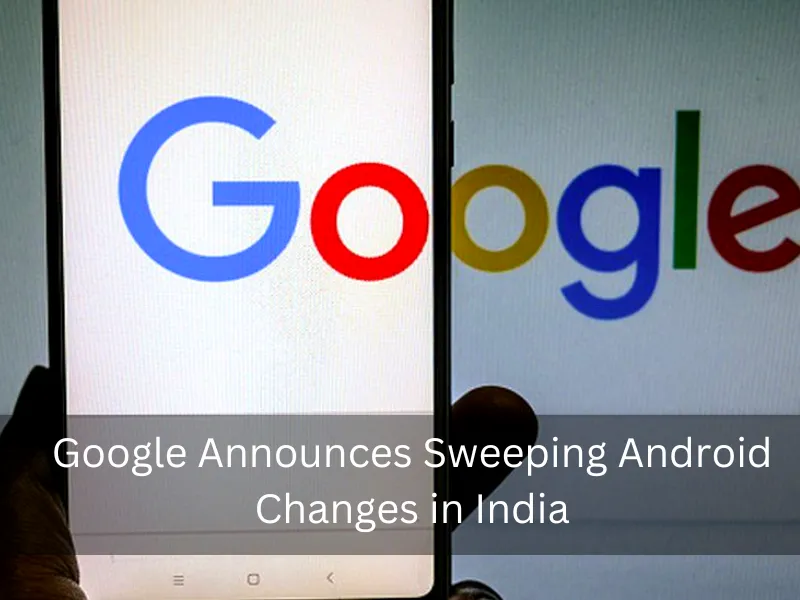Google said on Wednesday it will allow device makers in India to license its individual apps for pre-installation and give an option to users to choose their default search engine, announcing sweeping changes to how its Android system operates.
The move comes after the country’s Supreme Court upheld stringent antitrust directives last week, rejecting a Google challenge against a Competition Commission of India ruling that said the company abused its market position, ordering it to change how it markets its Android system in a key growth market.
“Implementation of these changes across the ecosystem will be a complex process and will require significant work at our end and, in many cases, significant efforts from partners, original equipment manufacturers (OEMs) and developers,” Google said in a blog post.
Google has announced a series of changes to its Android system in India after the search giant lost a major anti-trust case in the country.

This includes allowing users to choose their default search engine on Android.
The move comes after India’s Supreme Court upheld a ruling by the country’s anti-trust watchdog that said the company had abused its market position.
The Competition Commission of India (CCI) fined the company $161m, accusing it of “unfair” business practices.
About 97% of smartphones in India are estimated to run on Android.
Anti-trust proceedings against the tech giant started in October, when CCI asked Google to make several changes to its Android ecosystem.
The watchdog said Google was “abusing” the licensing of its Android operating system for a range of smartphones, web searches, browsing and video hosting services.
It accused Google of entering into “one-sided agreements” with smartphone makers to ensure the dominance of its apps.
CCI said this was stifling competition and gave Google continuous access to consumer data and lucrative advertising opportunities.
It ordered the company to stop such practices.
Google had challenged CCI’s directives in the Supreme Court, saying “no other jurisdiction has ever asked for such far-reaching changes.” It argued that the changes directed by CCI would force the company to alter arrangements with more than 1,100 device manufacturers and thousands of app developers.
But the court refused to block the CCI directives and said that a lower court, where Google had first challenged the order, could continue hearing the appeal, but should give a ruling before the end of March.
Last week, the tech giant said it would cooperate with the watchdog.
On Wednesday, the company announced that it would allow device makers in India to license its individual apps for pre-installation and allow users to choose their default search engine.
Implementation of these changes will be a “complex process”, the company said in a blog post, that would require “significant work at our end and, in many cases, significant efforts from partners, original equipment manufacturers (OEMs) and developers”.
Google is facing a series of anti-trust cases in India and authorities are also probing its conduct in the smart TV market.
Google had been concerned about India’s decision as the steps are seen as more sweeping than those imposed in the European Commission’s landmark 2018 ruling against Android.
About 97 percent of 600 million smartphones in India run on Android, while in Europe, the system accounts for 75 percent of the 550 million smartphones, according to Counterpoint Research estimates.
The CCI ruled in October that Google, owned by Alphabet, exploited its dominant position in Android and told it to remove restrictions on device makers, including those related to pre-installation of apps and ensuring exclusivity of its search. It also fined Google $161 million (roughly Rs. 1,300 crore).
Hoping to block the implementation of the CCI directives, Google had approached the Supreme Court, warning that growth of its Android ecosystem will stall. It said it would be forced to alter arrangements with more than 1,100 device manufacturers and thousands of app developers if the directives kick in.
But the Supreme Court did not agree to block the directives as Google sought. The court had also said a lower tribunal – where Google first challenged the Android directives – can continue to hear the company’s appeal and must rule by March 31.
“We continue to respectfully appeal certain aspects of the CCI’s decisions,” Google said.
The US search giant also said it is updating the Android compatibility requirements to introduce changes for partners to build non-compatible variants of Android.



